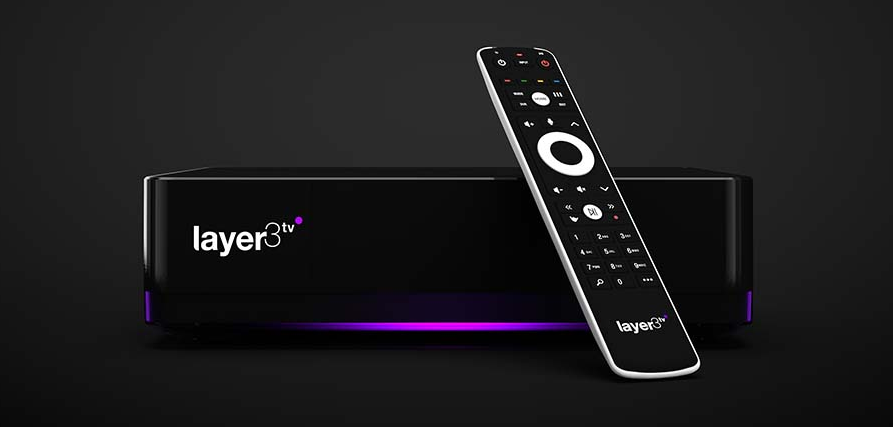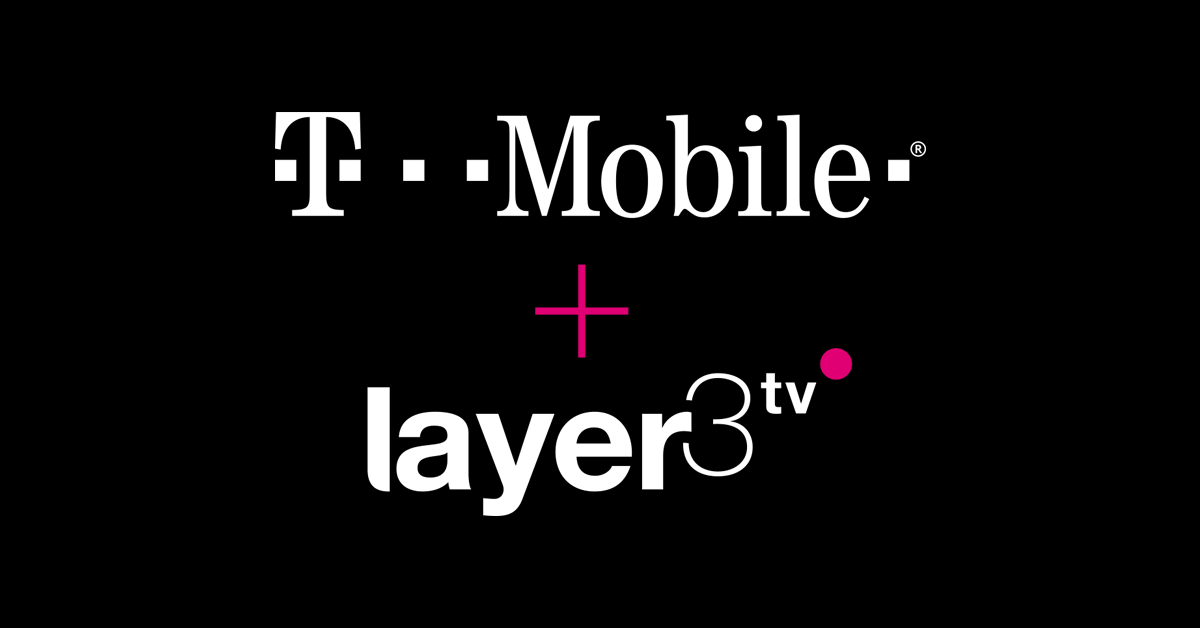What Is Layer3 TV and How Does It Work?
T-Mobile is buying Layer3, a cable TV service that doesn't need to install any cables in your home, just use the internet you already have.
Layer3 TV — a cable TV company that T-Mobile is looking to acquire and use as a foundation for a new streaming service — has launched with lofty ambitions, and some of the same technology that Apple added to its lineup this year.

While most cable companies require their own wires to send hundreds of channels to your home, Layer3 TV claims its encoding technology can send them using your existing Internet subscription. And it's slinging a list of up to 275 channels — which is pretty competitive with what you get from traditional cable.
What's the big deal about Layer3 TV?
T-Mobile may be acquiring Layer3 TV because it's able to act like a cable company without those pesky cables. It manages to pull this off by using the High Efficiency Video Coding (HEVC) technology to reduce its streaming bandwidth requirement from 10 MBps down to 4 Mbps. Furthermore, it still manages to stream 4K content at that rate.

Yes, that's the same HEVC that Apple made a big deal about in iOS 11 and macOS High Sierra, the updates it released earlier this year. With that tool, Layer3 TV can make its service available to all customers — once it's available in wide release, anyway — no matter who supplies their cable.
Why haven't I heard about Layer3 TV before today?
Probably because you can't access it. According to a Layer3 TV rep I spoke to today, the service is available only in Colorado, California, Texas, Illinois, Washington DC, Virginia and Maryland at this moment.
Fortunately for those who use Layer3 TV already, it announced it will stay active as-is.
What channels does Layer3 TV offer?
In total, you can subscribe to more than 275 channels from Layer3 TV. Its basic package (the Platinum allHD pack) costs $75 per month for around 150 channels. These channels include broadcast networks such as ABC, CBS, FOX, NBC and The CW, as well as PBS and the MyNetworkTV channel. The basic package includes a cable box; additional boxes cost $10 per month.
Sign up to get the BEST of Tom's Guide direct to your inbox.
Get instant access to breaking news, the hottest reviews, great deals and helpful tips.

The Platinum package also includes a lot of sports, with ESPN, ESPN2, ESPNEWS, FX1 and FX2. On top of that, you also get specialized channels, such as the NFL Network, the SEC Network, two Pac-12 channels the MLB network, the Golf Channel, the Tennis Channel and the Big Ten Network.
You also get all the cable news anyone could ask for, with CNN, Fox News, CNBC, HLN, Bloomberg, The Weather Channel, BBC World News, all three C-SPAN channels and Newsy. And, unlike some streaming services, you'll also get Viacom's channels, including Comedy Central, MTV and VH1.
Other cable channels that come with the Platinum package include History, A&E, FX, FXX and FXM, as well as USA, TNT, TBS, AMC and IFC.
What about premium channels?
You'll pay $15 extra per month for the HBO channels, $11 per month for Showtime, $20 per month for the Cinemax stations, $11 per month for Starz and $6 per month for Epix. Additional channel packages include Sports and Info, Movies and Music and En Espanol; each of those sets costs $10 per month.
What special features does Layer3 TV include?
Each Layer3 TV cable box includes 1TB storage for its DVR capabilities, which you might fill at a quick rate, since it can record up to 8 shows at once, with support for 4K video at up to 60 frames per second.
Also, Layer3 TV offers a user-customizable interface, with a separate profile for each member of your household. Streaming services such as Netflix and Hulu offer similar features. The Layer3 TV box also supports integration with Facebook, YouTube, iHeartRadio, Pandora and other services, so you can turn your TV into a more complete streaming interface.
While Layer3 TV streams to your TV, you can also watch its channels from laptops, smartphones and tablets. The Layer3 TV box also works with Amazon's Alexa and Google Voice.

Henry is a managing editor at Tom’s Guide covering streaming media, laptops and all things Apple, reviewing devices and services for the past seven years. Prior to joining Tom's Guide, he reviewed software and hardware for TechRadar Pro, and interviewed artists for Patek Philippe International Magazine. He's also covered the wild world of professional wrestling for Cageside Seats, interviewing athletes and other industry veterans.
